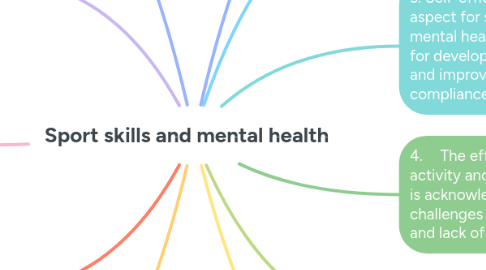Sport skills and mental health
作者:Alicia Solís

1. 6. The project aims to describe the practices used, analyze partial results, and determine whether to proceed with an experimental project involving more patients and structures.
2. 7. Two groups of patients are involved in the project: one group consists of patients under treatment at the mental health center who participate in daily activities, and the other group consists of patients housed in a facility.
3. 8. The activities for each group are tailored to their specific needs, such as socialization, preventive factors, primary prevention, and tertiary education.
4. 9. Various tests and assessments are conducted to evaluate the patients' progress, including measures of mood, physical performance, cognitive function, and social functioning.
5. 10. The preliminary results indicate positive effects on body mass index, physical performance, mood, social functioning, and cognitive abilities in the experimental group compared to the control group.
6. 1. The use of physical and sport practice is widespread in the field of mental health.
7. 2. Motor control plays a significant role in mental health and is based on traditional theoretical and argumentative study.
8. 3. Self-efficacy is an essential aspect for special needs and mental health, serving as the basis for developing inclusion strategies and improving therapeutic compliance.
9. 4. The effectiveness of physical activity and sport in mental health is acknowledged, but there are challenges in terms of efficiency and lack of a unified network.
10. 5. A pilot project is being conducted in Nocera Inferiore, Italy, involving physical activity and sport in a mental health facility.
11. 11. Patients in the experimental group show better ability to perform exercises and adapt to the new activities.


